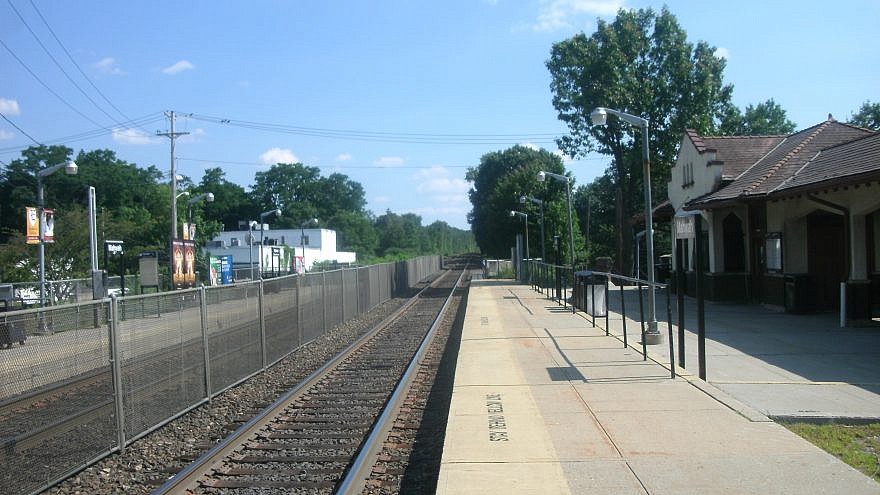New Jersey’s Jewish residents, as well as all residents in favor of reasonable free practice of religion, breathed a sigh of relief when a three-pronged, state-brought federal lawsuit involving the Township of Mahwah’s fight against the Bergen Rockland Eruv Association was settled this week out of court.
An eruv is a complete, circuitous series of unobtrusive wire and markers, sometimes called lechis, placed on trees or utility poles that establish a religious border around a community, allowing observant Jews to move, carry items and push strollers or wheelchairs on Shabbat and Jewish holidays such as Yom Kippur.
Last October, then-Attorney General Chris Porrino said he considered what he witnessed in Mahwah as a civil-rights violation the attempt to ban Orthodox Jews from the township’s public parks. This, combined with a resident outcry against the recently, and legally erected, eruv, on utility company-owned poles, coupled with and subsequent anti-Orthodox Jewish public statements by both town council members and residents, were seen as anti-Semitic—and illegal. The Department of Environmental Protection was included in the three-pronged suit, as Mahwah’s parks are beneficiaries of state-sponsored Green Acres funds, and the town would have to forfeit those funds if they were to ban certain groups or out-of-state residents from entering or using its parks.
One of two state-alleged unlawful ordinances involved Mahwah’s parks ban. The second banned the eruv.
The summer of 2017 was characterized by residents, advocates and elected officials from nearby Bergen County towns attending and speaking out at Mahwah (and two other towns who opposed the eruv: Montvale and Upper Saddle River) council meetings, with many making heartfelt pleas against bigotry, xenophobia and the eruv ban. Holocaust survivors and representatives of the NAACP spoke out, in addition to the Simon Wiesenthal Center, and other Jewish and anti-hate advocacy groups, who decried the inflammatory language of the meetings and pleaded for civility.
The settlement, reached with now-Attorney General Gurbir S. Grewal, who was Bergen County’s prosecutor during the summer of 2017 and was part of the original complaint’s drafting, made the following points:
Mahwah agreed to: 1) Not violate New Jersey’s Law Against Discrimination in any future decisions; 2) Notify the AG before introducing any new laws affecting access to township parks; 3) Notify the AG before introducing any new laws affecting posting on utility poles; 4) Modify township code to make it clear that devices on utility poles other than signs are unregulated; 5) Make a public statement against discrimination and harassment of others in township parks; 6) Keep records of complaints related to existing ordinances governing township park use and present a quarterly report on their enforcement to the AG; 7) Allow lechis to be installed on utility poles in the township and investigate any damage to them as a criminal offense; and 8), Make a suspended payment of $350,000 to the AG for legal fees and penalties. The payment will be canceled after four years if no evidence of further discrimination is found, at which point notifications and quarterly reports will no longer be required.
“The results of the settlement were a major rebuke to the Mahwah council with potential financial penalties, the need for major record-keeping and limitations on future actions,” said Dr. Lisa Wisotsky, an Englewood community leader who was active in the eruv advocacy efforts. “Mahwah Council President Robert Hermansen and the rest of the council have been put on a very short leash. Those of us who opposed the actions of the Mahwah council will continue to remain vigilant, as will the Attorney General.”
Simon Wiesenthal Center’s Eastern Director Michael Cohen attended every Mahwah council meeting and was a visible presence in the city in the attempt to keep civility.
“This unambiguous and comprehensive settlement is a clear victory for all of those who remained steadfast in opposition to discrimination, bias and anti-Semitism,” he told JNS.


























